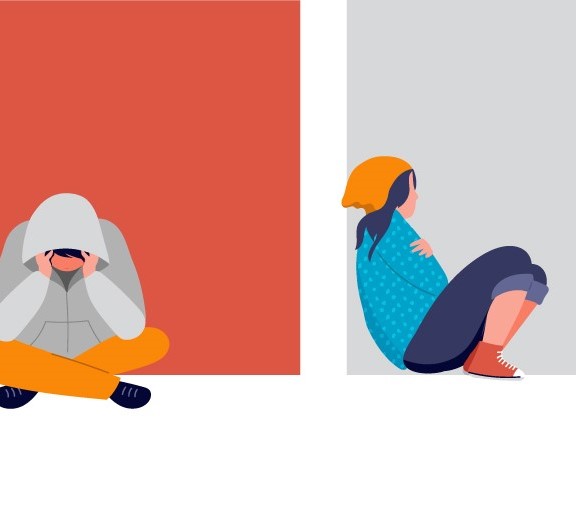
Suicide in Children and Teens: What Are the Warning Signs?
September 29, 2022
Growing up can be tough. The challenges of school, friends, and family can set the stage for depression, anxiety, and other mental health issues.
When mental health struggles are extreme, they can lead to thoughts of suicide. In fact, suicide is the second leading cause of death for children, teens, and young adults ages 15 to 24.
The good news is depression, anxiety, and suicidal thoughts can be treated. Your child, teen, or young adult can feel hopeful and happy again.
How can you help?
The first step is to learn the warning signs of suicide risk.
Warning signs in children
Younger children often do not plan far in advance, and they may attempt suicide on impulse. For this age group, some triggers for suicidal behavior include:
- Sadness
- Confusion
- Anger
- Problems with attention and hyperactivity
Warning signs in teenagers
Teenagers sometimes believe that death is a solution to an overwhelming problem or emotion.
For adolescents, suicide attempts may be associated with:
- Stress at home or school
- Self-doubt
- Pressure to succeed
- Worry about money and finances
- Disappointment in themselves or others
Other warning signs
While depression is usually part of what drives young people to suicide, there are other life experiences that increase risk.
These include:
- Having relatives or close family who attempted suicide
- Being exposed to violence
- Often acting on impulse
- Showing aggressive or disruptive behavior
- Having access to firearms (guns)
- Being bullied
- Feeling hopeless or helpless
- Mourning a romantic breakup or other major loss or rejection
Watch for these behaviors, which can show higher risk of suicide
Children and teens often keep their thoughts and feelings private. But the things they say and do can be clues about their inner struggles.
While many young people might show the following behaviors, pay attention to how many are true for your child—and how often you notice them.
- Saying "I wish I was dead" or "Soon I won't be a problem for you"
- Eating or sleeping much more—or less—than usual
- Feeling sad over many days or weeks
- Spending a lot less time with loved ones
- No longer having interest in favorite activities
- Complaining about stomachaches, headaches, and fatigue
- Having problems in school
- Being preoccupied with death and dying
- No longer talking about plans for the future
- Giving away possessions
What to say to your child
Worried that your child or teen is seriously depressed—or thinking about suicide?
Don’t delay. Talk to them about their thoughts, feelings, and possible plans to self-harm.
Ask clear questions, such as:
- Are you feeling sad or depressed?
- Are you thinking about hurting or killing yourself?
- Have you ever thought about hurting or killing yourself?
Be patient. Allow them to be quiet as they decide what to tell you, and how to say it.
You will not be giving them the idea of suicide. Instead, you will be showing them that you care.
If they are in danger, get help immediately:
- Call 9-1-1
- Call the National Suicide Prevention Lifeline by dialing 9-8-8
Need help with depression, anxiety, and more?
Carelon Behavioral Health is here for you.
Carelon Behavioral Health is here to help you with behavioral health treatment for depression, anxiety, marriage and family problems, or alcohol and drug abuse.
You do not need approval for individual, family, or group therapy. Also, you do not need a referral from your regular doctor.
English/Spanish interpreter services available 24 hours a day, 7 days a week.
For emergencies, call 9-1-1.
HEALTHfirst STAR Medicaid 1-800-945-4644
KIDSfirst CHIP 1-800-945-4644
KIDSfirst CHIP Perinate 1-888-814-2352



